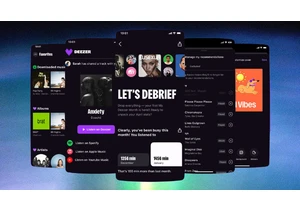When people talk about how AI might reshape media, the term “hyper-personalization” comes up a lot. In broad terms, it means that AI can tailor the experience around your preferences—assuming it has enough data about you. To some extent, algorithms and ad tech have been doing this for years, recommending links and stories based on your clicks and browsing behavior.
What generative AI brings to the table is the ability to adapt the content itself. A large language model could, in theory, understand the kinds of stories I care about and modify what I’m reading—maybe by adding an angle relevant to my region. It could even offer up different lengths or even formats. If I’m about to go for a run, maybe I want that feature article as a podcast. Or if I’m in a hurry, a short video in TikTok style might do.
But this frames AI as a kind of Santa Claus: a magical benefactor dropping content “presents” on demand. In the AI courses I teach, I often explain that a key unlock of AI is that, once you use it enough, you start to realize the value is often more in the conversation—the questions you ask and the answers it gives—than the so-called output.
Verbal features such as ChatGPT’s Advanced Voice Mode are ideal for this. If you haven’t engaged in a brainstorming session while driving or walking, you’re missing out. AI can be an excellent brainstorming partner when you need to think through something. Even better: it can be a superb writing assistant, helping you develop ideas, stay on track, and fill in the holes in your arguments—without taking over the writing itself.
Rethinking how we read the news
Now apply that same idea to how we consume news. When you hit a point in the story you’re reading where you want to go deeper, you can instantly do that. If, say, you were reading a story about bringing the dire wolf back from extinction, you could ask about whether the same technique could be applied to other extinct species, how ethicists are responding, or how the news is affecting the biotech sector. The AI could bring in all that context without needing to “navigate” anything.
We’re already seeing early signs of this behavior. On X, for example, people often tag Grok—a chatbot built into the platform—to ask follow-up questions about trending stories. It’s a small but telling behavior: instead of passively reading the news, users are instinctively treating it as a jumping-off point for a deeper conversation.
Most news stories aim to deliver the latest facts, often with only a perfunctory amount of background—usually tucked into a paragraph or two at the end. For exotic topics like crypto, this often leaves the subject impenetrable to casual readers. With AI, however, a news story can be a conversation—one that explains things at exactly your level.
In other words, the most powerful personalization tool isn’t data—it’s your words. This is the eureka moment in Joshua Rothman’s recent New Yorker essay that contemplates how AI might improve the news. The only catch? It requires a mindset shift—from AI giving you things to AI helping you discover things for yourself. There needs to be some education in the use of AI on the part of the reader.
AI still needs a map
But for that vision of AI and news to work, context is everything: In other words, the machines still need a map. For AI to bring you the absolute best information for whatever news rabbit hole you want to go down, you need a data set that’s oriented towards news topics. The massive data sets in today’s large language models are probably overkill, since they bring noise or generic knowledge when specificity is what’s needed. However, restricting the context to just the stories on the site you’re reading would be too limiting.
A better idea would be something like a “general news corpus” of vetted sources that publishers could opt into, which other sites could access to bring a wide-ranging context into their AI experiences. ProRata and NewsGuard are building these kinds of products, but their best use case might not be general search engines like Perplexity or ProRata’s own Gist. Context is arguably more important when a reader has already clicked on an article and begun to go down a path. With AI, that path doesn’t have to be on rails—the reader can go in any direction, and the right context will follow.
The most compelling thing about this vision of personalized news is that it doesn’t require Big Tech to be part of it, at least outside of building the large language models themselves. Journalists provide the raw information, product designers can build the experiences, and third-party content brokers assemble the context.
Participation, not prediction
For the past two decades, media organizations have optimized their platforms by trying to anticipate what audiences would respond to. But AI may be rendering that approach obsolete. Imagine a news experience where every reader gets the background they need, the angles they care about, and the context to go deeper—all just by asking. That’s not personalization by prediction. That’s personalization by participation.
Melden Sie sich an, um einen Kommentar hinzuzufügen
Andere Beiträge in dieser Gruppe

If real Easter eggs aren’t your thing this weekend, you may find hunting for digital ones more enjoyable. And there are some cool ones to find at your fingertips, provided you have an iPhone or Ma

With music streaming, users have gotten used to being at the mercy of algorithms. But French music streamer Deezer is making it easier for its subscribers to make the algorithm work for them.

Trying to get from point A to point B? If only it were that simple! With any manner of travel these days, you’ve got options: planes, trains, buses, ferries, and beyond. And finding the best

When Twitter cofounder and Medium founder Evan “Ev” Williams was planning his 50th birthday party, he didn’t know who to invite. Having spent more of his life building and scaling tech

If you thought you’d heard the last of the viral “Apple” dance, think again. The TikToker behind it is now suing Roblox over its unauthorized use.
Last year, during the height of Brat su

A Wall Street Journal report this week gave an extensive look into how Elon Musk, the

Netflix fared better than analysts anticipated during the first thr
